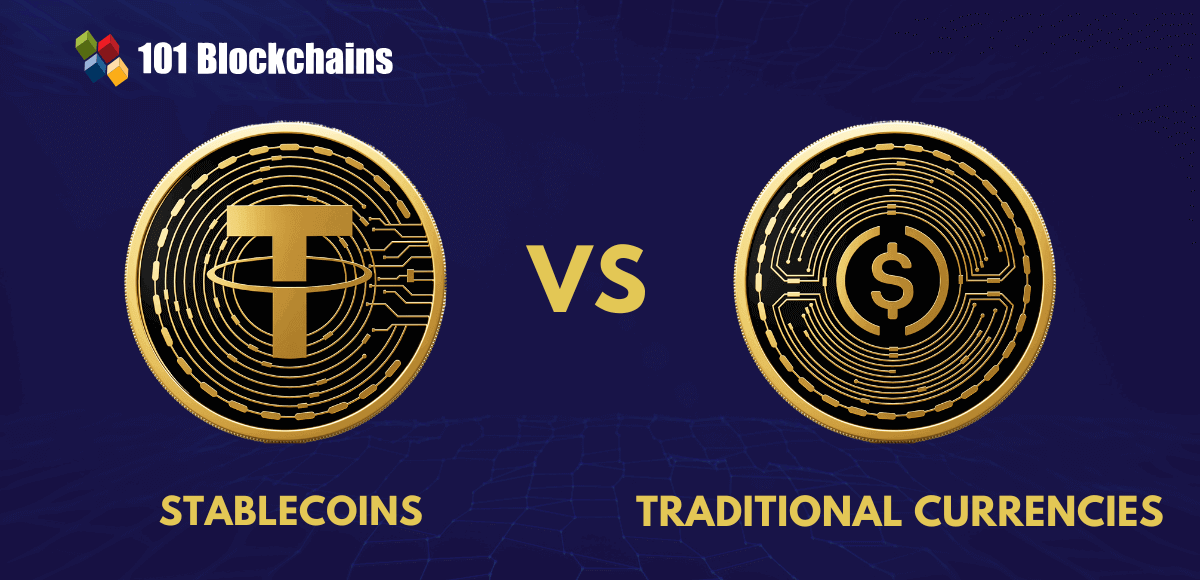Learn how blockchain truly works, master key definitions, and uncover what makes smart contracts so "smart." Dive into the fundamentals, gain valuable insights, and start your blockchain journey today!

- Comparisons
101 Blockchains
- on June 15, 2018
Ethereum vs Hyperledger: Which One Is Ideal For Smart Contracts And Privacy?
Ethereum vs Hyperledger is a debate topic that continues to elicit strong interest among researchers and developers, given the differences and similarities shared between the two blockchain projects. So what makes the two projects stand out from each other?
Excited to learn the basic and advanced concepts of ethereum technology? Enroll Now in The Complete Ethereum Technology Course
Ethereum vs Hyperledger: Projects Description
Ethereum is an open source distributed public blockchain network that provides developers with the necessary tools for creating decentralized apps as well as smart contracts. Developed by Vitalik Buterin, the network is an extension of the original core blockchain concept with a few added features.
Hyperledger, on the other hand, casts itself as an open source development project that seeks to offer better standards and robust solutions to better the blockchain ledger. Hyperledger acts as a software that allows people to come up with personalized blockchains to address unique needs with enterprise-grade capabilities.
Hyperledger does not come with a specific technology like Ethereum, which is powered by blockchain. Instead, it acts as a banner technology for multiple blockchains as well as DLT technologies used to develop distributed ledgers.
Excited to build your skill in Ethereum development by leveraging the ethers.js library? Enroll Now in Ethers.Js Blockchain Developer Course!
Ethereum vs Hyper ledger: Purpose
Hyperledger and Ethereum differ a great deal when it comes to purpose. Ethereum is notably known for powering smart contracts as well as decentralized applications. Hyperledger, on the other hand, leverages blockchain technology to deliver high degrees of confidentiality, resilience and scalability depending on a business needs.
With a modular architecture, Hyperledger provides a high degree of flexibility when it comes to usage.
Ethereum vs Hyper ledger: Cryptocurrency
Ethereum is powered by Ether which is the network’s native currency. Hyperledger, on the other hand, does not require cryptocurrencies for transactions. A lack of cryptocurrency enables a scalable consensus algorithm capable of handling high transaction rates.
Want to learn the basic and advanced concepts of Blockchain and Hyperledger Fabric? Enroll Now: Getting Started with Hyperledger Fabric Course
Ethereum vs Hyperledger Confidentiality
Confidentiality is another aspect that makes Hyperledger stand out compared to Ethereum. Hyperledger gives businesses and persons the flexibility of keeping transactions visible to only a select clique of agreed parties, with encryption keys.
Ethereum, on the other hand, can be either be public or private. Anybody can participate in an Ethereum network to see the transactions that are taking place. However, with Hyperledger that is not possible as one requires permission to join a network.
Excited to learn the basic and advanced concepts of Ethereum? Enroll Now: Ethereum Development Fundamentals Course
Ethereum vs Hyperledger Consensus
When it comes to consensus, all network participants must reach consensus on any transactions taking place in Ethereum blockchain, irrespective of parties involved in the transaction. Ethereum establishes consensus based on the proof-of-stake algorithm whereby all the nodes must agree upon a common ledger.
Hyperledger, on the other hand, allows nodes to choose how to proceed without having to involve all the nodes in the network. In this case, two or more parties can agree in such a way that they can influence the outcome, without involving other people.
The fine-grained control on consensus allows Hyperledger to enjoy improved performance and scalability and privacy.
Ethereum vs Hyperledger Programing Language
While both projects can be used to develop smart contracts, the programing language that developers can use differ. Ethereum allows smart contracts to be developed using a high-level contract oriented language dubbed Solidity.
Hyperledger uses the term ‘chaincode’ to denote smart contracts that handle business logic as agreed by members in a network. The chaincode have to be written in Golang, a programming language created by Google.
Familiarize yourself with the popular blockchain network, Ethereum, and ensure overall, comprehensive skill development with Ethereum Skill Path
Conclusion
Ethereum is an ideal blockchain platform for anyone looking to develop smart contracts or decentralized applications. However, its permission-less mode of operation comes at the cost of privacy. The platform also suffers from scalability issues.
Hyperledger while not of a match for smart contracts development compared to Ethereum, is a no-brainer for anyone who cherishes privacy. The fact that it solves performance scalability issues with efficiency also makes it ideal for enterprise projects.
*Disclaimer: The article should not be taken as, and is not intended to provide any investment advice. Claims made in this article do not constitute investment advice and should not be taken as such. 101 Blockchains shall not be responsible for any loss sustained by any person who relies on this article. Do your own research!





